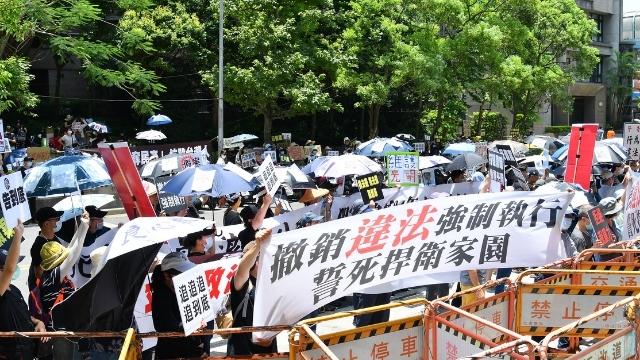A return to conscience is the way to solve the seemingly intractable problems faced by Dr. Hong and his dizi
by Mario De Paoli*
*A paper presented at the webinar “A Question of Conscience: The Tai Ji Men Case,” co-organized by CESNUR and Human Rights Without Frontiers on April 5, 2022, International Day of Conscience.

Let me introduce myself: I am Mario De Paoli, an Italian lawyer, and a new member of the Fedinsieme committee, created by my colleague Attorney Francesco Curto.
Over the years I have dedicated myself to studying the themes related to the dialogue between different cultures and different religions, as well as their persecution.
I have heard a lot, and positively, about Tai Ji Men and Dr. Hong and, thanks to Professor Introvigne and to Attorney Curto, I have studied the legal and tax issues they had to confront for a long time.
I followed with great interest your previous webinars and appreciated the important contents brought by the speakers. For me it is a real honor to be here with you today.
Today, April 5th, is the International Day of Conscience, a day in which we are called to become aware of the long series of mistakes that have been committed by humanity towards itself, based on a competitive, individualistic logic seeking economic gains only. This faulty logic is just one of the motivations that drive humans to reject conscience and act against each other.
This, we all agree, is a time in which we must make our choices and act with conscience. If we have not already done so, we should start to treasure the lessons that are abundantly offered to us by life, look for solutions to the problems we have not yet solved, win the inertia and prejudices that still prevent us from solving these problems, rectify the failures caused by tragedies, and try not to find ourselves unprepared for the next challenges.
This is, accordingly, a time when we must return to our conscience and face the crises of a past that is still present, face the present crises so that they will not be repeated in the future, and treasure this path to become women and men of conscience.
The Tai Ji Men movement and its founder, Dr. Hong, have put the theme of conscience at the very center of their experience. In fact, many people around the world have come to reflect on the central role of conscience precisely because of Dr. Hong’s relentless work.
Today, International Day of Conscience, however, we must also turn to Dr. Hong’s disciples (called dizi) and express our solidarity with them. I have a word for them directly. That somebody wants to obstruct your path to conscience education is clear. These obstacles are obvious, and have manifested themselves through persecution.
It is right to pay taxes, to “render unto Caesar the things that are Caesar’s,” as Jesus said, but not everything belongs to Caesar. It is also necessary that the demand of tax authorities are reasonable and fair.
In the case of Tai Ji Men and Dr. Hong they were not, because what was asked was against the principles of equality and consistency.
A new way of persecuting religious and spiritual minorities and their devotees has emerged in modern societies. Those in power have learned that if you want to denigrate opponents, discredit them and, therefore, prevent them from operating, all you have to do is a tax audit, followed by tax bills based on a creative interpretation of tax laws.
This is what happened to the Tai Ji Men movement and to Dr. Hong, who, since December 19, 1996, found themselves in an infernal circle, made up of criminal charges, seizure of assets, and long judicial battles.

That disciples give money to a master through the ritual of the “red envelopes” is a well-known modality of giving gifts in Chinese culture. The misunderstanding of the meaning and significance of this ritual by Taiwan’s tax authorities is, to say the least, absurd.
Fortunately for Dr. Hong and the Tai Ji Men movement justice has been done, even if in a partial way only. The acknowledgement that for the years 1991, 1993, 1994, 1995 and 1996, the rite of the “red envelopes” involved gifts and not payments for services was an excellent result, finally putting things in order.
That left out 1992, however, the year for which a ruling gave a different interpretation to the rite. But since nothing different happened in 1992 compared to other years, as a lawyer it seems clear to me that there has been a real violation of the principle of equality and the principle of consistency.
I want to conclude by recalling that all human beings are endowed with conscience and, for this reason, we must act towards each other with a sincere spirit of brotherhood. Our conscience can show us what is right and what is wrong, what is essential and what is superfluous, what leads to peace and love and what distances us from them.
Let us ask ourselves more often how we can bring value—not economic, but moral and ethical value—to our lives and to society. This will eventually lead to a resolution of the Tai Ji Men case as well.
Source: Bitter Winter

